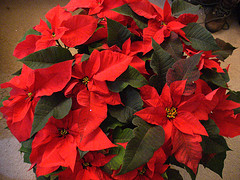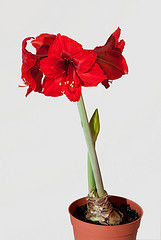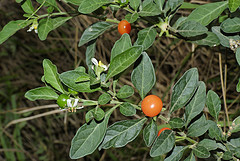It’s time to deck the halls with boughs of holly. But is holly poisonous? What about other holiday plants like poinsettias and amaryllises? We often worry about our kids eating poisonous plants, but there are things you can do to keep your kids safe during this holiday season.
Every year we spend Christmas Eve with my in-laws. I always enjoy walking around the tree and looking at all the ornaments they have collected over the years, opening the presents under the tree, eating too many Christmas cookies and going to midnight mass together. We always have a great time and leave with many fun-filled memories.
I will be doing things a little bit differently this year, though, because I have a just-starting-to-crawl seven-month-old son. He is faster than you would think! This year after we bring in the gifts, overnight bags and snacks, I will be going around the house to make sure it is ready for him to explore.
I will start by moving the Christmas cactus and poinsettia plants that are near the front door up high and out of reach—not because they are poisonous, but they could make him choke. If he ate a lot of the poinsettia plant he might feel sick to his stomach and throw up. But the idea that poinsettias will kill you is a myth. And Christmas cactuses are not poisonous at all.
I will also put up high the beautiful amaryllis that blooms every year just in time for Christmas. Amaryllis bulb is the most harmful part of the plant. If a child eats enough of the plant, they may feel sick to their stomach or throw up. They may also get diarrhea.
Other holiday plants to keep out of children’s reach are mistletoe, holly and Jerusalem cherry.
If a child eats a few berries or leaves from these plants, they may feel sick to their stomach, throw up or have diarrhea. If they eat a larger amount of mistletoe or Jerusalem cherry, they could have worse symptoms.
If you think someone has eaten one of these plants, or any plant that may be harmful:
- Take all the pieces of the plant out of their mouth.
- Give them a few sips of water or milk.
- Chat now with the poison center or call 1-800-222-1222.
To learn more about poisonous plants, visit our poison index.
We hope you have a safe and beautiful holiday season.








